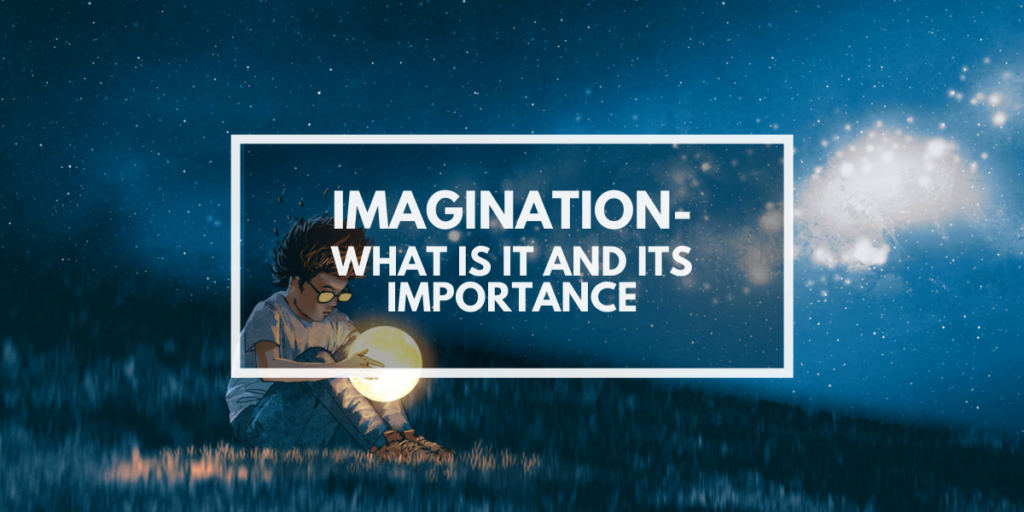Imagination, the power or ability of a human to create or desire new ideas. The best thing about this is that no one can control or teach you about your imagination, it is completely your own and unique. It is your independent creativity.
The more you imagine, the more you improve your creativity. Imagination is limitless and plays a big role in creating ideas into reality.
Imagination is the ability to produce and simulate novel objects, sensations, and ideas in the mind without any immediate input of the senses. It is also described as the forming of experiences in one’s mind, which can be re-creations of past experiences such as vivid memories with imagined changes, or they can be completely invented and possibly fantastic scenes.
It helps make knowledge applicable in solving problems and is fundamental to integrating experience and the learning process.
Imagination as in Psychology
Imagination is a cognitive process used in mental functioning and sometimes used in conjunction with psychological imagery. Its nature is such because it involves thinking about possibilities.
The cognate term of mental imagery may be of use in psychology for denoting the process of reviving in the mind recollections of objects formerly given in sense perception.
Since this use of the term conflicts with that of ordinary language, some psychologists have preferred to describe this process as “imaging” or “imagery” or to speak of it as “reproductive” as opposed to “productive” or “constructive” imagination.
Importance of imagination in life
So why is imagination important in life? The ability to imagine things pervades our entire being influences everything we do and think about.
It is a powerful brain-booster since it makes you think in a way that is not standard for other people. It can help you to find solutions that can be considered unexpected by your brain, but your power to imagine things can create scenarios that solve problems in the most effective way.
Is it more important than knowledge?
Albert Einstein once said, ‘the true sign of intelligence is not knowledge but imagination. For knowledge is limited to all we know and understand, while imagination encircles the whole world, and all there will be to know and understand.’
Imagining new things and making them a reality adds up to making knowledge. Without it, there won’t be any new technology that we see today like cars, smartphones, and even humanoid robots.
Pros of imagination
- The first pro is that it helps us in improving our creativity level.
- It could also help out in thinking of solutions of some difficult problems in our life.
- If we imagine properly about all the consequences, effects (whether good or bad) of any situation or a decision, we could choose a better way of making our ideas and plans.
- It is an important thing for creating knowledge. Without imagining, there would be any knowledge.
Cons of imagination
- Too much of imagination could be dangerous or could affect our mind badly.
- One should know how to make difference between reality and their imagination. Too much of imagining could create problems to one’s life and personality.
- Relying too much on it may be a sign of Obsessive-Compulsive Disorder. This could create confusions in differentiating between the reality and one’s imagined universe.
Final Thoughts
Imagination is important in one’s life for many reasons, but it should be in a controlled manner. Therefore, one should never stop imagining, but also shouldn’t rely too much on imagining.
One should know the difference between imagination and reality and shouldn’t mix them. It should be used to create new ideas and creations and one shouldn’t always be living in their imagined world.
It contributes heavily to creating knowledge. Hence, an individual has his/her unique imagination. The world we are living in now is full of new technology which is the result of our imagination only.
Do check out our other blogs.
- FINDING OUT MORE ABOUT LUCID DREAMS
- FINDING YOUR AMBITION IN LIFE
- TIME AND ITS VALUE
- PROCRASTINATION: A THIEF OF YOUR TIME?
By Harshit Sharma

